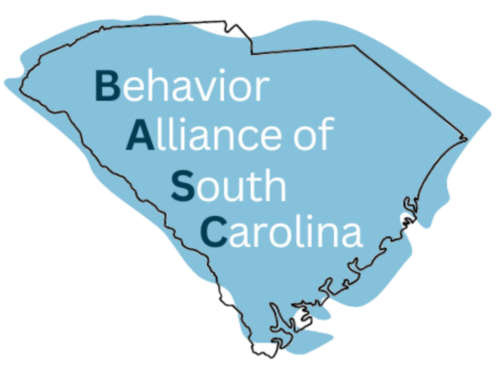SC-CEC 2025
February 27-March 1, 2025 in Greenville, South Carolina
Join us at the 2025 South Carolina Council for Exceptional Children Conference in Greenville, SC, where our team will be hosting and co-hosting a variety of sessions dedicated to supporting students with disabilities and their communities. From pre-conference workshops on February 27th to engaging presentations and workshops running February 28th through March 1st, we’re excited to share strategies, tools, and insights that empower educators and advocates. Stop by our sessions to connect, learn, and collaborate!
Explore various Behavior Alliance-hosted sessions below:
A Roadmap for Supporting All Students: Implementing Evidence-based Classroom Management Practices (Pre-conference session)
Cathy Griffith and Megan Carpenter
The session will be focused on designing a classroom behavior system, which is focused on the implementation of evidence-based classroom practices to promote positive, prosocial behavior that facilitates a sense of belonging for all in a classroom. Participants will explore free resources to support their application of essential classroom practices.
Maximizing Family Engagement to Address Challenging Behavior
Karen Elfner and Mya Kelley
This session is designed for everyone experiencing students with challenging behavior. Families are a valuable but underutilized resource when problem-solving challenging behavior. When working on problems at the district and school levels, there are evidence-based strategies for engaging families that can reduce challenging behavior and improve the school climate. When addressing the challenging behavior of individual students, involving families offers unique insights that can be helpful in developing more effective behavior plans that can be applied across home and school settings. As a result of this session, participants will be able to: 1) identify strategies for involving families in schools that have resulted in positive student behavior and other school-wide outcomes, and 2) identify strategies to engage families in school-based individual problem-solving around behavior to improve outcomes.
Evidence-Based Classroom Behavior Strategies for All Students
Georgia McKown and Steven Rufe
The Behavior Alliance of South Carolina has worked to gather evidence-based strategies for educators to employ to support all students and packaged them within an easy to understand, easy to implement model. This interactive session will provide participants with the opportunity to learn, model, practice, and role play various evidence-based, relationships-focused classroom management strategies. These strategies are for any adult in a school to utilize with any student tomorrow. The session will include opportunities for hands-on practice, action planning, and working with peers to formulate plans to implement the practices when participants return to their settings.
Harnessing the Potential of Collaboration to Build Better Teams
Logan Qualls, Cathy Griffith, and Mya Kelley
Collaboration enhances development of student-centered interventions and yields greater outcomes for students. In this presentation, we blend three high leverage practices (HLPs: Aceves & Kennedy, 2024) to discuss establishing effective collaborative teams in regard to developing high quality functional behavior analysis and support plans. The three HLPs we will discuss include HLP 1, collaborating with other professionals, HLP 3, collaborating with families, and HLP 10, conducting functional behavior analysis to create behavioral plans (Aceves & Kennedy, 2024; McLeskey et al., 2017). Blending these HLPs together builds a more positive and effective support plan for students with disabilities where all stakeholders share an understanding of and responsibility in the design, implementation, and outcomes.
Participants will learn three CEC High Leverage Practices related to collaborating with professionals and families, how they can be integrated into practice and combined to increase the effectiveness of support and interventions. Specific examples, resources, and strategies will be shared.
Unpacking the November 2024 OSEP Guidance: Using Functional Behavioral Assessments to Create Supportive Learning Environment
Shanna Hirsch and Mitchell Yell
In November 2024, the US Department of Education’s Office of Special Education and Rehabilitative Services (OSERS) and the Office of Elementary and Secondary Education (OESE) jointly released guidance on the Functional Behavioral Assessment (FBA) for all students whose behavior interferes with learning. In this session, we will highlight: (1) how function-based support can be employed throughout the continuum to support all students; (2) a range of function-based supports (e.g., brief, comprehensive, wraparound); (3) updates related to developing FBA-BIPs for any student along with consent; and (4) resources to help educators understand function-based supports and implement FBA-BIPs.
Reframing Challenging Behaviors in the Early Childhood Classroom
Kerri Kannengieser, Tanya Hutchinson, & Karen Elfner
Are you experiencing challenging behaviors in your preschool classroom? Join us to dive into the most recent research and evidence-based tools on behaviors that challenge adults serving young children. Come learn with us as we define challenging behavior and dig deeper into understanding how behavior has meaning. We’ll discuss strategies to prevent and reduce challenging behaviors, explore the importance of reframing behavior, and expand on tools & strategies to support positive relationships for ALL young children.
